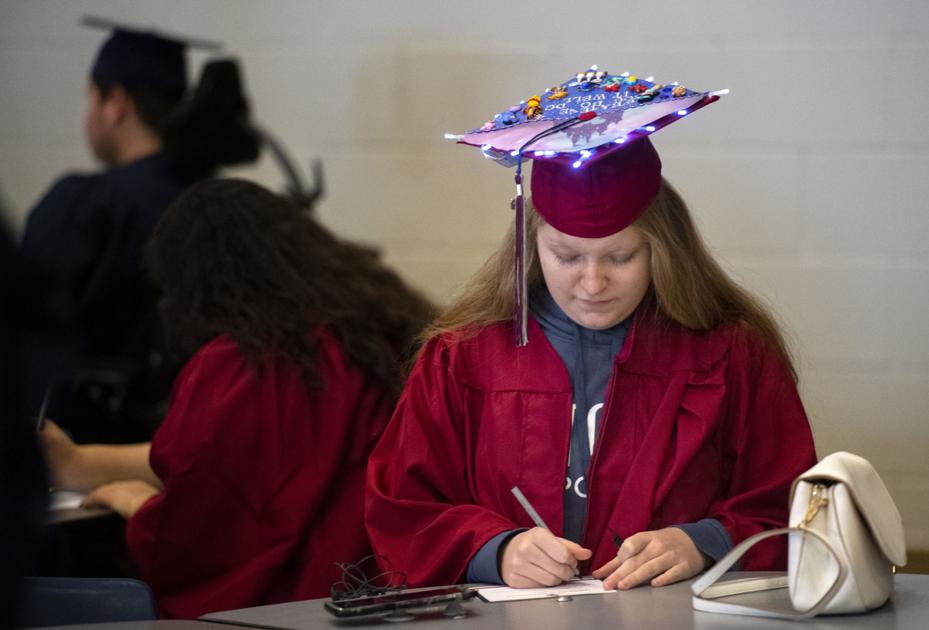Schools should “prepare for the possibility” of not returning to in-person instruction until January 2021, Gov. Jared Polis told Colorado’s 178 public school district superintendents on a statewide conference call Tuesday, Colorado Springs School District 11 spokeswoman Devra Ashby said.
Superintendents sought clarification and direction after Polis announced Monday while showing a slide, not verbally, that all public and private K-12 schools statewide are to remain closed for the remainder of this academic year to further limit the spread of the coronavirus.
“It wasn’t clear yesterday; there was some guessing, open-endedness and ambiguity,” Academy School District 20 Superintendent Tom Gregory said Tuesday. “It was left open to interpretation on that slide.”
For the fall semester, the governor advised superintendents to develop proposals for continued distance learning but also to create models that would employ staggered start times and new formats for lunch, passing periods, and other interactions that would allow for proper social distancing measures.
“What I heard is we don’t know where this is going to go, and schools should have plans in place for returning in August that’s potentially different than what schools have had in the past,” Gregory said.
But it will be difficult to change operations until “we have a little more guidance,” he said. “We need a target to shoot for.”
Higher education institutions also are facing unknowns after closing campuses and implementing distance learning in March.
The University of Colorado at Colorado Springs is “still planning to have fall semester classes back on campus,” spokesman Jared Verner said. “But we are monitoring the situation and will go remote again if we need to for the health and safety of the faculty, staff and students.”
In discussing moving forward, the CU system’s President Mark Kennedy told the Board of Regents during an April 16 meeting that Dr. Anthony Fauci, director of the National Institute of Allergy and Infectious Diseases, has said he thinks colleges and universities will be able to open in the fall.
But, “there’s no certainties at this time,” Kennedy said.
CU system officials are considering how to house and feed students with expected social distancing restrictions, as well as what to do with over-capacity classes and labs, possibly varying times and moving some classes to online learning to meet any capacity limitations of the coronavirus, Kennedy said.
Polis told superintendents that it’s unrealistic for school district officials to think they can have a traditional graduation ceremony until at least the fall, Colorado Springs D-11’s Ashby said.
Details haven’t been determined, but D-11 plans to provide virtual commencement events for its 1,600 graduating seniors in eight high schools, she said.
“Every superintendent is getting beat up on this,” Ashby said of canceled graduation ceremonies. “Here we go mixing politics with education, which should never be a thing, but it is.”
Academy D-20 will announce plans for recognizing accomplishments of its seniors on Friday, Gregory said. A survey that produced 400 responses from students and parents indicated they want something “as close to a traditional graduation ceremony as possible,” he said.
“People are holding out hope we can do something,” Gregory said. “I feel bad this is the way they had to end their K-12 education. There’s been a lot of lost opportunity this spring — theater performances, choir concerns, spring athletics, middle school and elementary school graduations that demonstrate rites of passage.”
Some parents and students wonder why high schools can’t hold modified in-person ceremonies like the U.S. Air Force Academy did last Saturday with graduates kept several feet apart and other restrictions put in place, district leaders said.
Ashby cited the difficulties for D-11 to orchestrate a ceremony with a few weeks’ time for eight high schools graduating a total of 1,600 students. Air Force cadets had been under quarantine on site for weeks, she said, and are under federal, not state jurisdiction.
In-person graduations must be planned in concert with local health agencies, Polis told superintendents.
Schools also must figure out how students and teachers can retrieve their personal belongings from lockers and classrooms, how seniors can get their caps and gowns, how yearbooks will be distributed and other issues.
The disappointment is difficult for everyone, officials said.
Just a few weeks ago, D-11 high school students who meet quarterly with the superintendent told him even if they could get just one day to say goodbye to teachers and other students, it would give finality to the 2019-2020 year, Ashby said.
Academy D-20 “absolutely was holding out hope” for students, teachers and administrators to return to school, even for a few days or a week, to bring closure to the academic year, Gregory said.
“Hope is an important word, and we want our seniors leaving with a great deal of hope,” he said.
This content was originally published here.





